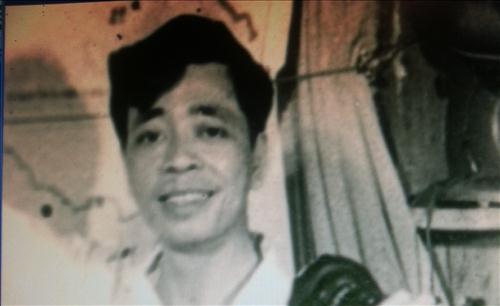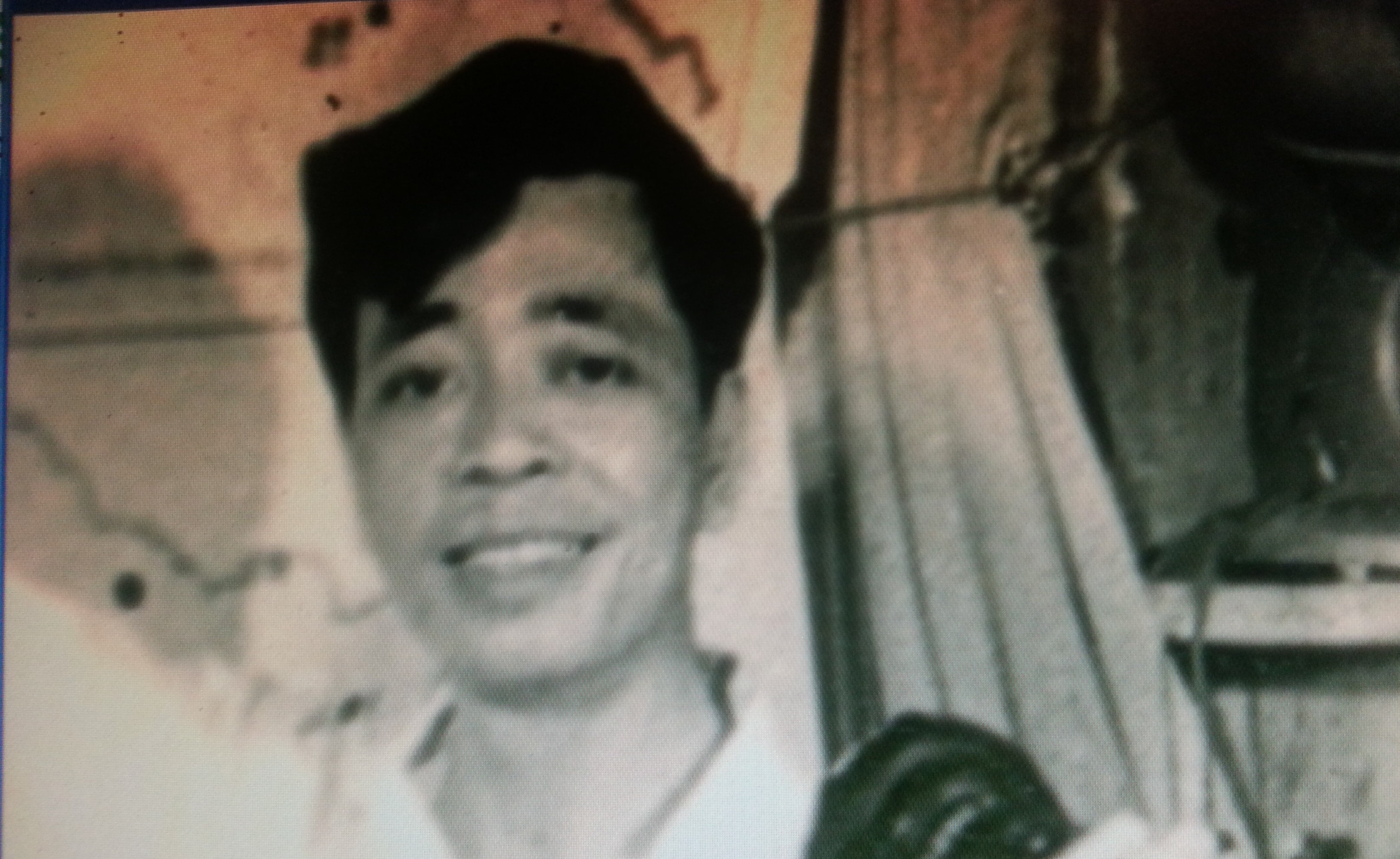
Nearly forty years ago, in late autumn of 1963, the Faculty of Literature at Hanoi University was located near Lang Pagoda (now the site of the Foreign Trade University and the Diplomatic Academy). One afternoon, we saw the professors from the Linguistics department leaving a meeting. Among them was a very "impressive" stranger, tall and with a Western look, elegantly dressed, and pushing a red Jawa motorbike, which was very rare at that time. Professor Nguyen Cao Dam told us third-year students that this was Professor Nguyen Ham Duong, who had just earned his Associate Doctorate in Linguistics from Lomonosov University. We felt a vast gap between him and us in terms of academics and lifestyle. We occasionally saw him in the faculty, but never had the opportunity to interact, so that distance seemed to grow even larger.
A year later, we had the opportunity to study with him. Professor Nguyen Ham Duong said: "I was a soldier before, I fought against the French with a gun in my hand, and now I've had the chance to go to school. Now I'm back teaching at the university, and I hope to receive your understanding and cooperation." We were extremely surprised by his simple and approachable demeanor. During each break, he shared with us a cup of tea, a cigarette, or a sesame candy. He maintained his soldier's style during lectures: speaking simply, getting straight to the point, expressing his opinions, criticizing students frankly and sincerely, and then letting things go once the matter was settled.

Professor, Doctor of Science, Meritorious Teacher Nguyen Ham Duong (1930-1992) was the Head of the Department of Linguistics (1973-1978).
Professor Ham Duong imparted to us our first general and applied linguistic knowledge, which I continue to pursue decades later. Through him, we learned about structural linguistics at its peak, with renowned names from Bloomfield to Harris, from Hjelmslev to Jakobson. I first heard the name N. Chomsky in his lecture when Chomsky had only appeared seven years earlier (1957) with "Syntax Structures." Professor Ham Duong was also the first to provide us with insights into linguistics and information through the works of Malmberg, linguistics and cybernetics with books by Wiener, Shannon, Esbi, etc., which were completely unfamiliar to us. Today, when I teach students the "Language - Communication - Marketing" course, I can't help but fondly recall those days.
In 1965, we graduated amidst fierce fighting. In the mountainous forests of Dai Tu district, Thai Nguyen province, I, along with Professor Ham Duong and Professor Doan Thien Thuat, were assigned to share a room. A kind landlord gave us two bamboo houses, but they were open on all sides, without walls. I was apprehensive. Before I could even ponder, that evening Professor Duong gathered the three of us and said: "We are starting a new life, which will likely be long-term, so we can't settle for temporary arrangements. We must organize ourselves like the military to suit wartime conditions and work quickly." Professor Thuat and I proposed forming a three-person group under the common name Duong Duc Thuat.
For a whole month, our instructor supervised us in building houses, plastering walls, making beds, tables and chairs, and gathering firewood for cooking.
Then came the farming activities. The teacher borrowed land from the villagers, organized the tilling, and planted vegetables. The most difficult thing was fertilizer. I was worried. The teacher said: "There are quite a few young people tending cattle on the mountainside here; that's a source of fertilizer for us." Then he made three sets of carrying poles and made a deal: each of us had to collect five loads of fertilizer. He started first. Every afternoon, I carried my carrying pole along the mountainside with the teacher, collecting cow dung, each of us with one load. Seeing my youthful shyness, the teacher understood and said: "Don't be shy, collecting cow dung won't prevent you from getting married later!"
Being close to him, "he could leisurely recount his humble beginnings," and it was through the stories he told me during the three years we spent together that I came to know his life as a soldier.
Born into a poor family in the outskirts of Nam Dinh province, he was in his final year of high school when the August Revolution succeeded. Two months later, at the age of 16, he dropped out of school and volunteered to join the province's Southern Advance Army to fight the enemy in the South. His company fought in the South Central region. When the front collapsed, his squad drifted to Laos to fight alongside the Laotian army. In March 1946, the Laotian front collapsed again, and surrounded, he and the Laotian soldiers swam across the Mekong River to join Souphanouvong's army. Suffering from hunger and cold in Thailand, he made contact with the Party's overseas activities led by revolutionary Nguyen Duc Quy. He was assigned to pose as a businessman to buy weapons for the revolution. He recounted: "I learned to dress fashionably thanks to this job in Bangkok." In 1947, the Thai right-wing came to power and suppressed the revolution. He was arrested and imprisoned. Four months later, the Party rescued him and put his group into clandestine operation. He left Thailand to begin a new, dangerous journey: participating in the sea transport of weapons purchased in Thailand to the U Minh forest in Ca Mau.It could be said that he belongs to the first generation of soldiers on the sea trail.For two consecutive years, he sailed the seas on unmarked boats, sometimes disguised as fishermen, sometimes as traders, transporting weapons and ammunition. He faced countless dangers at sea and with the enemy, often thinking he could not escape. He was one of the veteran soldiers of the Western Sea arms trafficking network. In 1949, he joined the Party and was assigned to Zone Nine to fight in the army of Mr. Phan Trọng Tuệ. After three years of fighting on the front lines and in the swamps, in 1952 he was transferred to the Southeastern region. Unlike the swamps, the forests of the East lacked rice and medicine, malaria was rampant, and hunger and thirst forced people to subsist on wild roots. Mr. Hàm Dương greatly admired the songs "Southern Resistance" and "Forest Music," which he considered to be "the hardships and heroism of the East." In the East, he had a very close friendship with two friends: playwright and director Ngô Y Linh and poet Xuân Miễn.
After signing the Geneva Accords, he left the forests of the East and went to the Joint Armistice Commission in Phung Hiep and Sa Dec. He spoke French and participated in the struggle to implement the agreement with the French, holding the rank of company commander. He requested to stay in the South to fight, but the decision required him to relocate because his cover had been blown.
Returning from the battlefield to the North, he was sent to study in the Soviet Union. Once there, because he hadn't completed high school, he had to continue his studies in the Russian high school equivalency program before being allowed to attend university.
From a soldier, Professor Ham Duong became a Bachelor of Linguistics and then the first PhD in Experimental Phonetics in our country under the guidance of the renowned Professor Reformatski at Professor Artjumov's laboratory (MGU). A bold pioneer in new fields, he was an early adopter of applied linguistics, specializing in aphasia, developing expertise in neurolinguistics, and successfully defending his doctoral thesis (1984) at the laboratory of the famous Professor V. Ivanov (MGU). He became the first director of the University's Center for Asian and Pacific Studies before returning to the South with a deep affection for the South and its soldiers, bearing the insignia of "The impregnable fortress of the Fatherland"in his capacity as a professor at the University of Ho Chi Minh City.
Professor's scientific contribution was bringing the latest information on linguistic science to the country's linguistics during a time before the country opened up to the world. He pioneered in approaching new issues and imparted them to his students: Language and Information, Applied Linguistics, the linguistics of N. Chomsky, and especially pathological linguistics, neurolinguistics, etc.
The teacher's most outstanding characteristic was his straightforwardness and strong determination in everything he did, big or small. Once he decided on a task, he would see it through to completion. He left behind a legacy of deep respect for many generations of students.
For me, the image that will always remain of my teacher is that of a charming intellectual with a very modern style and a rugged soldier with "the moon hanging over the gun barrel."
I remember most vividly my teacher's words: "I am a soldier who became an intellectual, and you intellectuals must become soldiers" (1965).
|
PROFESSOR, DOCTOR OF SCIENCE, OUTSTANDING TEACHER NGUYEN HAM DUONG
+ Workplace: Faculty of Literature, Hanoi University Department of Linguistics, University of Social Sciences and Humanities. + Management position: Head of the Department of Linguistics (1973-1978).
Vietnamese tones through experimental phonetic research. (MGU, 1963). Neurolinguistics and Aphasia(Aphazia) (MGU 1983). Phonetics of the Tay and Nung languages through field research.(co-authors(1966-1969). |
Author:Professor, Doctor, People's Teacher Dinh Van Duc